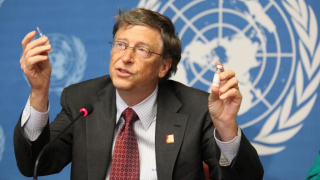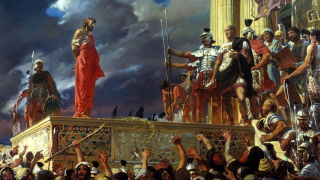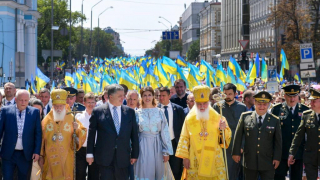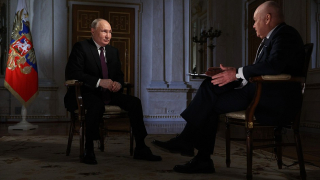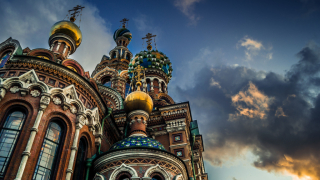Coronavirus and Social Control
03.04.2020
Being of a timid nature myself I would like to precis what I am about to say with a caveat. I am as confused as anyone about the veracity, or not, of the experts’ statistical assessment of this virus and the measures taken to combat it. But I am willing to give them the benefit of the doubt. I am sure that the illness has resulted in vast amounts of suffering and tragedy, especially in the manner of those who die; alone and separated from their loved ones and without even a priest to comfort them. It goes without saying that the medical staff and others working in these environments are worthy of our adulation. But I want to talk about another aspect thrown up by these events which is not so clear-cut; that of social control through public shaming and public adulation (stick/carrot).
The greatest fear of modern man is not death, nor is it sickness or job loss. In a world increasing run in, by and for the public arena, the greatest fear is public shaming. By public shaming I mean in particular, being singled out as a “nasty” or “selfish” person and held up for public mocking and disgust. Such a person is deemed to be a creep, secretly out for their own good at the expense of the common good. This is why both individual and mass virtue-signalling has reached such epic proportions. The opposite of public shaming is to be held up (or to promote oneself) as a selfless do-gooder, ever disposed to “little acts of kindness”, such as forwarding a Whattsapp video to show your community spirit, or pictures of you doing a charity fun run. Poor people we are! All of us weak, craven and faithless. Each man is in reality no better than the next, all are subject to the same passions, fears and hopes.
What about the Coronavirus? What is astonishing is the rapidity with which people have willingly engaged with mass social control, without any need for tanks or bullets. Such is the power of public shaming. Absolutely no one has put up any resistance, it has cut through all religions, cultures and political persuasions (“see what we can do when we all work together?” will be the cry of the globalists when all this has passed). Whole countries have been shamed into following suit. Likewise, entire populations have indulged in mass acts of virtue-signalling, not dissimilar to those seen in the Cultural Revolution. “We noticed that you didn’t clap at 8pm – can you explain why?” This is an extremely effective way of enforcing consent and silencing dissent. It is also peculiarly English. Rather than barking orders at people, we prefer to use passive-aggressive emotional blackmail to make people tow the line. A good example is the use of children in war, migration and other contentious areas. For example, a photo of a drowned migrant child on the beach can be used to silence all who question completely open borders; “see the result of your hate? This is what you want! Now shut up!” Similarly, someone who breaks the Coronavirus quarantine by driving to a beauty spot can be held up for scorn as someone who wants to kill their very own elders. No one wants to be “on the wrong side of history”, or on the wrong side of the wagging finger.
What are we, as Christians, to make of all this? Like others, we also are pulled in all sorts of directions. From the laudable desire to alleviate potential suffering by not spreading the virus, to anxiety about the closing of the world’s churches practically overnight (a measure unprecedented outside communist dictatorships). When we think of the early great martyrs of the Church like St Catherine, there is a lot of focus on their physical suffering (which it is true was often unimaginable). There is less focus on their public humiliation.
But the Church wasn’t founded by group-think cowards who herded together for “the common good”. The Church was founded by teenage girls who faced the ridicule of their families, their communities and Roman society at large by standing up to the Emperor and telling him that he was worshipping idols. This brought out a sea of mocking and jeering from the crowd. Beyond this, Christians as a group were accused of bringing plague and disaster to communities. But they did not give up. They continued to fight on, sometimes alone, knowing that “eye hath not seen, nor ear heard, neither have entered into the heart of man, the things which God hath prepared for them that love him.” Such was a monomakhos (one who fights alone) of those great times. Likewise, Christians in the West have emphasised the physical sufferings of Our Lord, but less so the public shaming and humiliation.
This contrasts with Orthodoxy where the humility of Christ in the Passion takes centre stage; “And when they had platted a crown of thorns, they put it upon his head, and a reed in his right hand: and they bowed the knee before him, and mocked him, saying, Hail, King of the Jews!” Perhaps this is because we would rather think about “heroes” as brave and handsome young men “going over the top”, and not conscientious objectors who displayed almost impossible courage as recipients of the scorn and ridicule of their entire nation and even families. True courage, heroism and sanctity are very often to be found in the most unsung and unlikeliest of places, as Gerard Manley Hopkins wrote so beautifully,
But be the war within, the brand we wield
Unseen, the heroic breast not outward-steeled,
Earth hears no hurtle then from fiercest fray.
Thus, social coercion through public shaming is probably as old as humanity itself, but only in our times has it reached such heights. Perhaps this is because of the creeping global dominance of English culture? This is probably a fanciful idea, but no nation is as inclined to social conformity as much as the English. This is in spite of our incessant proclamations of the spirit of proud English individualism and buccaneering capitalism. In truth, we are a nation of curtain-twitchers and this is reflected in our infantilised and hysterical press and media. We are probably no more cowardly than any other nation, but we seldom, if ever, recognise the truly heroic courage of the hidden monomakhos.
Where is all this leading? Firstly, it should be said that much of the social conformity comes from a good place, at least in part. G.K Chesterton said that the modern world is full of all the Christian virtues “run mad”. Whilst wanting to promote one’s own virtue in the public sphere is not a virtue but in fact a serious sin, the acts themselves are often good. As a priest once said to me in confession; “if you wait till your intention is pure, you will never do anything good”.
Also, I would note that the one thing of which people are really starved in the developed West is a sense of community. For all its ersatz vanity and sinister group-think, the drive for upholding the common good is reaching for that lost need. This being said, all this is not leading to a good place. More and more the mantra is “global solutions to global problems”. Whether by design or not, the Coronavirus is a gift to the globalists: it has cut through all religions and cultures, incarcerating their populations indoors and forcing them into acts of mass approval and denigration. Christianity has always been an eschatological religion. We believe that the death of the body is not the worst thing that can happen to a person. Neither is the greatest happiness of the greatest number the goal of society. Some Christians mistakenly think of the Antichrist as a kind of nasty dictator. On the contrary, the Antichrist will have all the Christian virtues in abundance, and will desire to unite all humanity in a global coalition of love in order to end unfairness, poverty, climate change and war. He will be greatly loved (“And all the earth was in admiration after the Beast”) and those few who oppose him will be reviled as hate-mongers and culturally backward.





